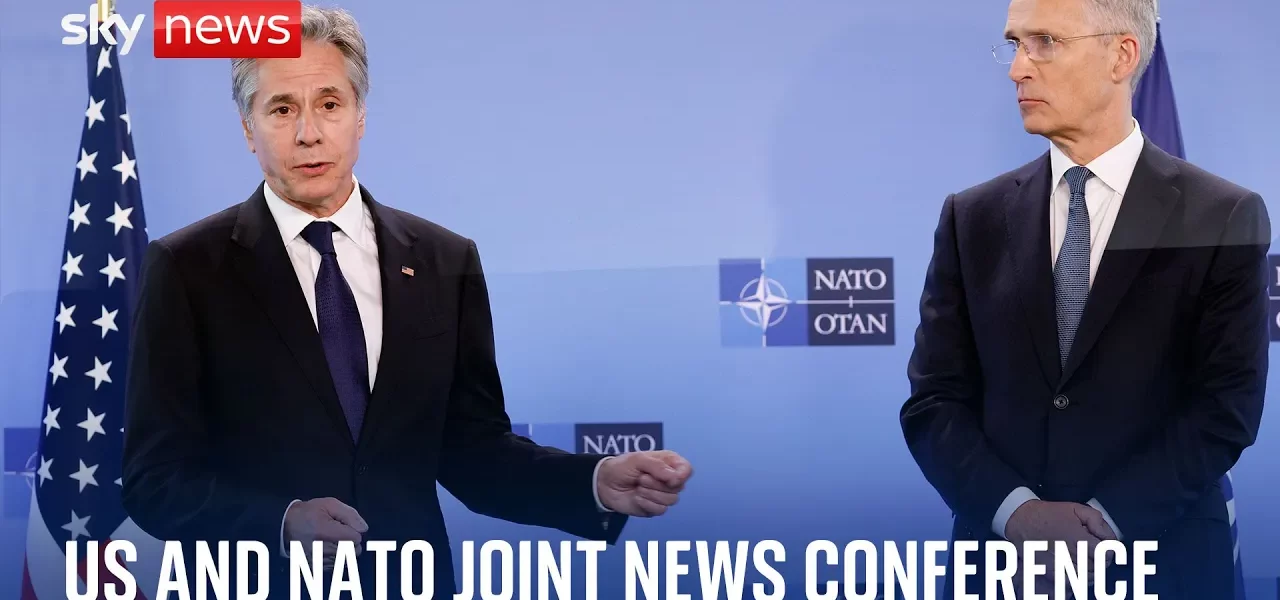NATO’s 75th Summit: Strengthening Collective Defense and Support for Ukraine

In just a few weeks, NATO will celebrate its 75th anniversary in Washington, focusing on the alliance’s enduring strength and unity, while addressing contemporary challenges. This article delves into the pivotal discussions and commitments expected at the summit, emphasizing collective defense and unwavering support for Ukraine amidst regional tensions.
Introduction
NATO’s 75th Summit marks a significant milestone in the history of the alliance, symbolizing decades of collaboration and mutual defense among member nations. As the world faces new security challenges, this summit will not only celebrate past achievements but also chart a path forward to ensure NATO is well-equipped to handle both current and future threats. Central to these discussions will be the commitment to collective defense, the ongoing support for Ukraine, and the strengthening of partnerships with allies beyond the transatlantic area.
Celebrating 75 Years of NATO
The NATO summit in Washington will celebrate 75 years of the alliance’s existence, highlighting its evolution from a collective defense mechanism to a multifaceted organization addressing various global security issues. Key points include:
- Historical Achievements: 75 years of peace and stability in the transatlantic region.
- Collective Defense Principle: The core commitment of member states to defend each other against aggression.
- Adaptation to New Threats: NATO’s ongoing transformation to meet emerging security challenges.
Collective Defense: A Pillar of NATO
At the heart of NATO’s mission is the principle of collective defense, as outlined in Article 5 of the North Atlantic Treaty. This principle asserts that an attack against one ally is considered an attack against all, which serves as a powerful deterrent against potential aggressors.
The Role of Collective Defense in Preventing Conflict
The concept of collective defense is crucial for maintaining peace and stability. It functions as a deterrent by ensuring that any aggressor must contend with a unified response from all member states. Key aspects include:
- Deterrence of Aggression: Potential aggressors are less likely to initiate conflict knowing they will face a coordinated military response.
- Investment in Defense: NATO allies are increasing their defense spending, with 23 of the 32 allies meeting the 2% GDP target established in 2014.
- Strengthened Alliances: Ongoing commitments to mutual support bolster NATO’s overall readiness and response capabilities.
Support for Ukraine: A Top Priority
In light of the ongoing conflict in Ukraine, reaffirming NATO’s support for the country will be a central theme at the summit. Discussions will focus on:
Military and Financial Assistance
NATO allies have committed to providing substantial military and financial aid to Ukraine, including:
- Enhanced military training and security assistance.
- Financial support exceeding $50 billion to bolster Ukraine’s defense capabilities.
- Bilateral security agreements with multiple nations to ensure long-term support for Ukraine.
Long-Term Strategy for Ukraine
The summit will also address the need for a comprehensive long-term strategy to support Ukraine’s defense against aggression. This includes:
- Recognizing Ukraine’s aspirations for NATO membership.
- Facilitating Ukraine’s integration into NATO’s defense framework.
- Implementing robust plans to enhance military capabilities in response to ongoing threats.
Emerging Global Security Challenges
The security landscape has evolved significantly, with new threats emerging from various regions. NATO will address these challenges, including:
Geopolitical Tensions
Increased cooperation with partners in the Indo-Pacific region is essential. NATO recognizes that security challenges are interconnected, affecting both transatlantic and Indo-Pacific stability.
Cybersecurity and Hybrid Threats
The rise of cyber threats and hybrid warfare necessitates a coordinated response. NATO plans to enhance its cyber defenses and resilience against unconventional attacks.
Conclusion
The upcoming NATO summit represents a critical juncture for the alliance as it seeks to navigate complex global challenges while reaffirming its commitment to collective defense and support for Ukraine. The decisions made at this summit will have lasting implications for the security of member states and their allies. As NATO celebrates its 75th anniversary, it stands stronger and more united than ever, ready to face the future with determination and resolve.
Call to Action: Stay informed about the outcomes of the NATO summit and its implications for global security. Explore our related articles on NATO’s history and its role in contemporary geopolitics.
“`




